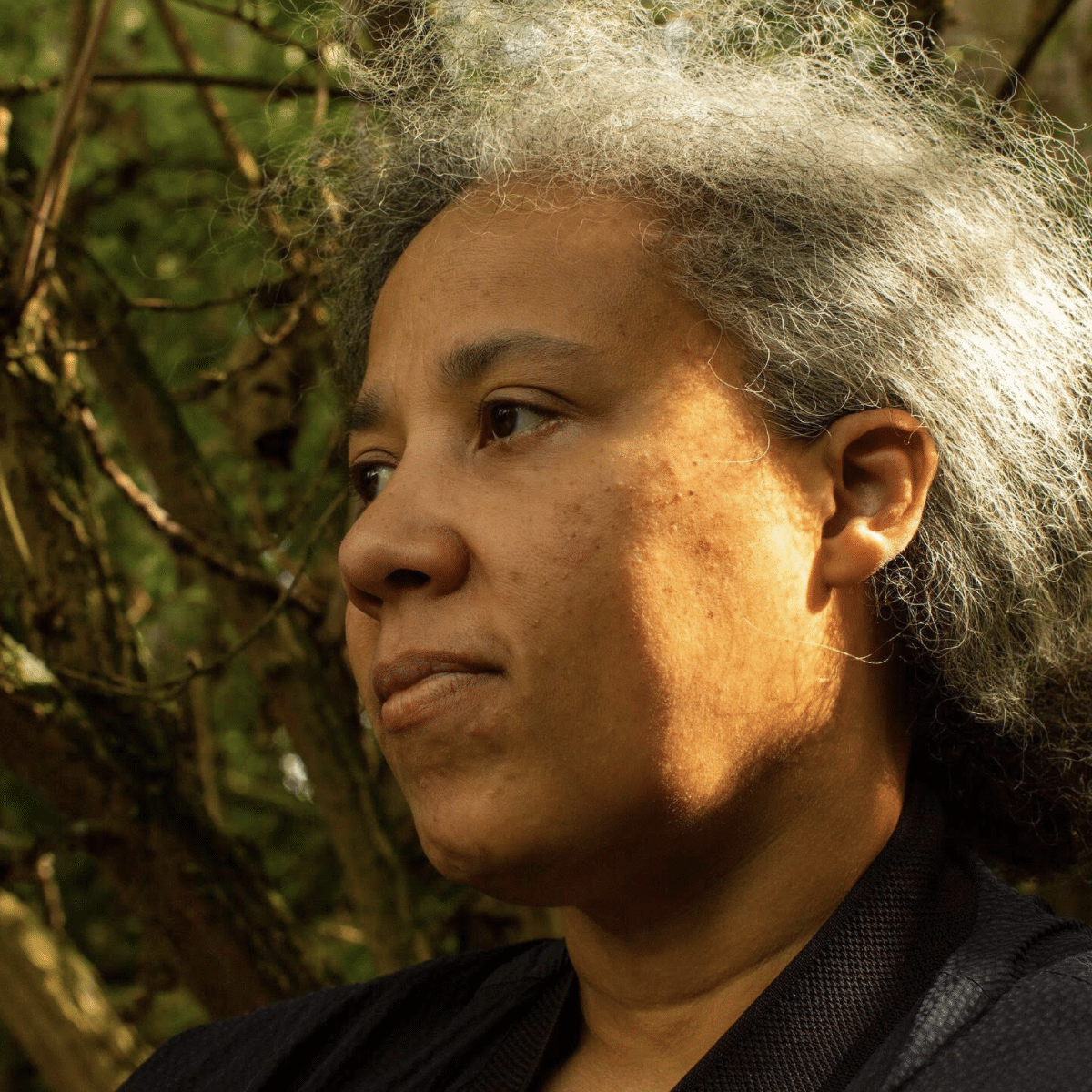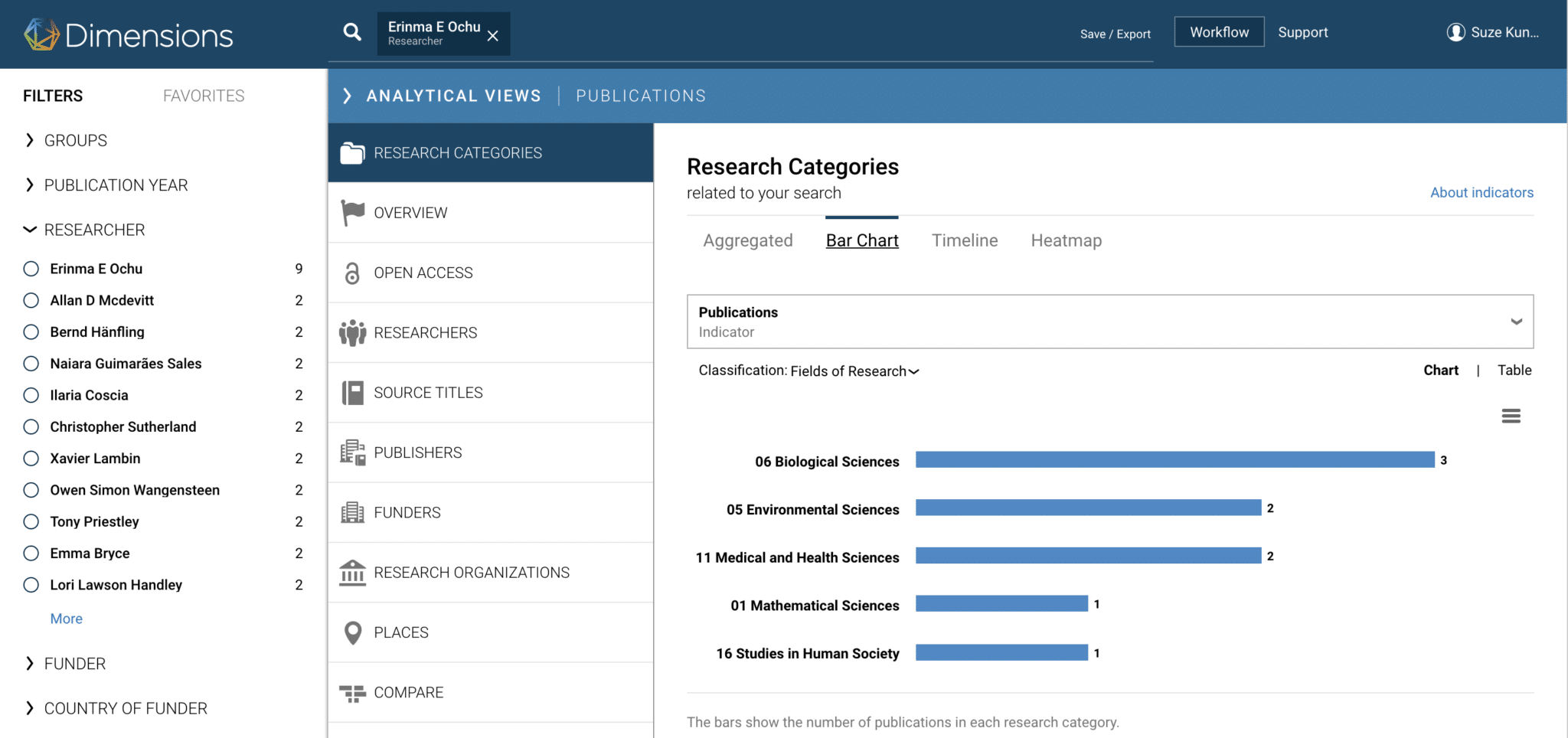Subscribe to our newsletter
Black History Month STEM Celebration 2021 – Dr Erinma Ochu
For Black History Month USA, Digital Science’s Suze Kundu and ReadCube’s Olivia Bates wanted to celebrate the science, technology, engineering and mathematics (STEM) heroes from the USA and the UK that are making history. They asked some of our STEM heroes what changes they would like to see in research culture in 2021, with a view to revisiting them in October, Black History Month UK, to celebrate the progress that has been made, and highlight the work that still needs to be done for greater equality, diversity and inclusion of Black people and other underrepresented groups in STEM.
The second part of the series continues with some thoughts from technologist Dr Erinma Ochu. Dr Ochu is the Interim Director of Engaging Environments, creating spaces and capacities for knowledge exchange and co-production between diverse communities and NERC environmental scientists to reset equity and inclusion agendas around the climate crisis. Dr Ochu is also a Senior Lecturer in Digital Media and Communications at MMU and holds a Wellcome grant focused on Stewarding the Digital Commons.
Research Background
Dr Ochu’s research seeks to reconfigure the ways in which the digital revolution (including automation, interconnectivity, sensing technologies and real-time data) can be shaped creatively to generate new cultural forms, stories and worlds. This work has implications for articulating a digital commons to inform shared values from which to redesign how we live together equitably in a warming world.
This work is enthused with queer, black feminist and situated perspectives, and has ethical implications for stewarding new digital literacies at the intersection of art, science, technology and health. Dr Ochu’s ambition is to broaden the field of cultural neuroscience to extend human intelligence with perceptual tools for stewarding our local environments.
Alongside their roles with Engaging Environments, Dr Ochu also co-founded Squirrel Nation, which was recently awarded one of 4 Ada Lovelace / Just AI creative fellowships funded by AHRC. They hold a PhD in Applied Neuroscience from The University of Manchester and are an EAVE alumni of AudioVisual Production. They somehow also find the time to be a champion of open research and an active global ambassador for Figshare and Digital Science.
Dr Ochu’s work crosses many different research areas. It is through this interdisciplinary approach that they have been able to make so many positive changes in how we think about technology, data and community across all areas of research. (Source: Dimensions)
What changes would you like to see in research culture in 2021?
This is a huge question. My response would relate to the policy work I’ve collaborated on recently with my UK colleagues, Professor Dawn Edge and her postdoc, Jamal Alston. There are so few black female professors in the UK and it was such a pleasure to be able to work with Dawn, who is a Professor in Mental Health and Inclusivity, during the pandemic. Dawn invited me to get involved in producing this policy piece around ‘Scientific Racism’ and structural inequalities: Implications for researching Black mental health’. This work traces a link from American researchers mainstreaming false claims about racial differences and intelligence which have informed modern views on contemporary mental health services, which has impacted the treatment of black people in education and healthcare.
Dawn and Professor Ijeoma Uchegbu outlined the crucial role that funders and funding panels play in enabling or preventing culturally adapted health research or ethnically diverse researchers to get funded to UK Parliament. However, COVID-19 is not the only time that health inequalities and systemic racism in research against black folks are evident in the UK and in the US, and must now be addressed. So for me, I’d like to see research culture – whether in funding, within a lab, or within our communities – to create strategic mechanisms, including funding, and partnerships, that better consider our cultural contexts and lived experiences, to improve and innovate research to be more representative of the populations who pay for and can benefit from research. I’d love to see more people actively supportive of work undertaken to decolonise scientific knowledge beyond the white imperial research canon, which currently shapes research culture.
Alongside that, quickly embracing postcolonial and culturally adapted ways of generating knowledge with adequate funding for that work, counting in securing tenure and attracting research students with a community partner who contributes and frames health research. It shouldn’t be a battle for Black researchers, and our communities, to do this work when it could be the norm. There are amazing community organisers and companies strategising around this too, including BlastFest, and BlackInNeuro. I look forward to seeing the innovations that emerge, at the intersection of these kinds of platforms, alongside the traditional neuroscience lab out there.
Two of my funders, Wellcome and UKRI, put out anti-racism statements in response to the Black Lives Matter movement we saw in 2020. I’d like to see this progress into more Black researchers funded to develop new contexts for doing research beyond the traditional lab, with our communities, and for that to be as valued and as invested in as a $20 million high-facility lab that again COVID19, and my field of community and citizen science, has disrupted. In the UK the evidence is clear. I am grateful to work with supportive researchers like Dr Lia Li, Dr Hope Bretscher, and Professor Rachel Oliver who want and back change that will benefit everyone.



